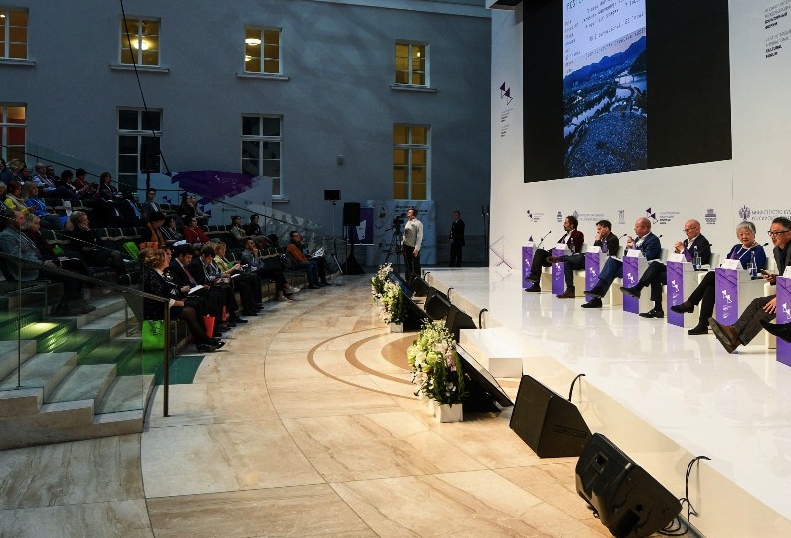Saint Petersburg International Cultural Forum: Life in the post-pandemic era

Life in the post-pandemic era: How do we digitize the city, create a national park in the heart of the metropolis and reduce the disease incidence? — This will be discussed at the IX Saint Petersburg International Cultural Forum.
An example of how design can change a city is the development strategy of the Kazanka River in the capital of the Republic of Tatarstan. It is assumed that the first national park in Russia, located in the city, will appear here. 12 new park zones with a total area of over 1.5 thousand hectares will be created on both banks of the river. Combined into one large recreational area, they will open up new opportunities for the residents for recreation and sports: cycling and walking routes along the river alone are planned to be about 150 km long. It is estimated that the implementation of the project will help reduce the risks of cardiovascular diseases among citizens by 30%, the risks of respiratory diseases by 40%, and the annual citywide mortality by 13%. One of the ideologists and project leaders Natalia Fishman-Bekmambetova, assistant to the President of the Republic of Tatarstan, will talk about the program and its implementation. Foreign architect Vicente Guallart, founder of Guallart Architects and co-founder of the Institute of Contemporary Architecture of Catalonia will take part at the session. Mr. Guallart is the author of the Xiong’an development plan. This city in China is supposed to be built from scratch, taking into account the lessons of the pandemic.
The city as a whole, each of its districts and individual buildings will be self-sufficient in order to give people the opportunity to work and live comfortably during the lockdown. the development of a modern city would be incomplete without experts in working with analytics and Big Data. With the help of their research, it is possible to understand how jobs, traffic flows, points of attraction are distributed, how incomes of residents in each locality are formed. Aleksey Novikov, President of Habidatum, and Yuri Milevsky, partner of Novaya Zemlya, which, in particular, developed a digital spatial development model for the Johannesburg master plan, will share the results of their research.
The session will also be attended by Michel Lusseau, director of the Lyon Urban School, Maria Broman, architect, general director of Semrén & Månsson International, one of the largest architectural companies in Sweden, Mikhail Shvydkoy, the special representative of the President of the Russian Federation for international cultural cooperation and the main architects of two Russian capitals — Vladimir Grigoriev, chief architect of the city of Saint Petersburg and Sergey Kuznetsov, chief architect of the city of Moscow.
«Last year, there was a lot of discussion about whether a pandemic would be a verdict on the city? Now we know for sure — no, but we need to transform the urban environment. Leading experts began this work long before the pandemic, but today, of course, we are faced with the task of taking into account its lessons. We have a lot of tools in our arsenal — big data, green technologies, planning experience from other countries. We must adapt all this for our own cities,» noted the head of the section «Creative Environment and Urbanism», chief architect of Moscow, Sergey Kuznetsov.
The activities of the section were prepared with the active participation of the Committee for Architecture and Urban Planning of the City of Moscow. The Program of the Section is subject to possible changes — follow the news on the Forum’s website and social media. Registration for participants of the Professional Flow of the Forum will be open until October 24 on culturalforum.ru.



